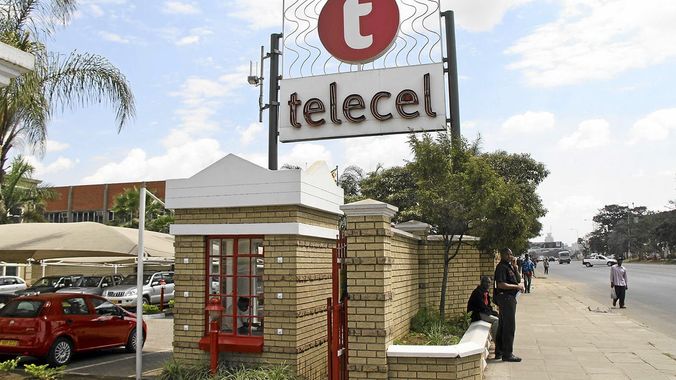Zimbabwe’s third largest telecommunication company, Telecel, has missed out on a $1 billion software deal between its parent company VimpelCom and Erickson.

The deal encompasses a complete overhaul of VimpelCom’s information technology infrastructure across 11 countries on a scale that is the largest and most ambitious in the telecommunication industry’s history.
“This marks a fundamental milestone in our transformation as we move ahead with our strategy to turn VimpelCom into a true digital pioneer,” VimpelCom chief executive Jean-Yves Charlier said.
VimpelCom, which sold its 60 percent shareholding in Telecel to cash-strapped and little-known Zarnet last year for $40 million, will digitalise and globalise its business support systems infrastructure using Ericsson’s software and cloud technologies.
The Digital Stack will accelerate product and service development, while the delivery and use of near real-time analytics, will allow greater personalisation of services for customers.
The project will cover 11 of VimpelCom’s 14 national operations, Pakistan, Russia, Uzbekistan, Kazakhstan, Algeria, Ukraine, Bangladesh, Kyrgyzstan, Tajikistan, Armenia, and Georgia, according to a company official.
Italy, where VimpelCom is hoping to merge its Wind operation with Hutchison’s Three, is not included, nor is Laos and Zimbabwe.
This comes as the Netherlands-headquartered firm is struggling to get the remaining $30 million from Zarnet and his since appealed to President Robert Mugabe to help expedite the payment, which has been delayed by Zimbabwe’s cash-crisis.
Businessdaily understands that according to the deal signed in October last year, VimpelCom was supposed to be fully paid by April this year and Zimbabwe has already breached the contract by failing to fulfil its obligations.
People knowledgeable about events at the New York Stock Exchange-listed telecommunication firm said the decision to leave Zimbabwe out of the deal was necessitated by uncertainties surrounding VimpelCom’s future in Telecel.
“We would have loved to stay in Zimbabwe and helped improve the country’s telecommunication industry but the way we were treated forced the management to think otherwise. Some of our technical people are still in Harare and once the payment comes through we will pull out for good,” said the sources.
Meanwhile, Charlier said the new Digital Stack will help VimpelCom better respond to its customers while also centralising and simplifying business, creating lean and agile operations that will result in a more efficient cost structure across its global footprint.
VimpelCom noted that there would be “a significant reduction in operating costs” and that “the improved technology structure will enable VimpelCom to fast-track its digital innovation strategy, particularly in the areas of mobile entertainment, communication, the internet of things, and mobile financial services.”
“This technology shift is a huge leap forward for VimpelCom and forms part of our strategy to transform into an agile business that understands our customers and answers their digital needs.
“Only by investing in the latest technology and going fully digital will we be able to provide these innovative and competitive services across the group,” VimpelCom group chief technology officer Yogesh Malik said.
VimpelCom offers services to customers in 14 markets including Russia, Italy, Algeria, Pakistan, Uzbekistan, Kazakhstan, Ukraine, Bangladesh, Kyrgyzstan, Tajikistan, Armenia, Georgia, Laos, and Zimbabwe. Daily News






